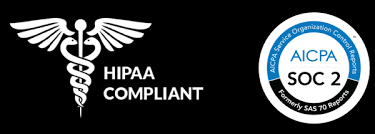FAQS
Here are answers to some common questions.
-
What are the different types of wearables & med devices we support?
We have integrations with different types of wearable cloud & med devices like Google Fit, Fitbit, Apple Health Kit, Oura Ring, Garmin, Strava, Wahoo, Polar, Dexcom, Withings.
-
Are you guys self serviced with a portal?
Yes we have a self serviced portal, which enables our customers to signup and login to an administrative portal.
-
Where can I find the platform pricing information?
We charge a fixed platform monthly fee which is billed annually. More on our pricing can be found here.
-
What is real world data?
Real world data is the data that we capture from different wearables and apps in a non-invasive way while we perform our day to day activities like standing, working, sleeping, running and watching television etc.
-
Do you provide API documentation?
Yes we provide API documentation. Reach out to us with an enquiry and we will provide you the links to our API documentation.
-
What is FHIR?
FHIR (Fast Healthcare Interoperability Resources) is a standard for exchanging healthcare information electronically. We support FHIR R4 standard which means you can query our APIs in the FHIR format and you will receive responses in FHIR R4 format.
-
Do you have a sandbox environment with test data?
Yes, we do have a sandbox environment with test data from different health systems. Once you signup you get 7 days free trial to play around with our APIs
-
What are the steps to get started with Health Compiler platform?
Describe the item or answer the question so that site visitors who are interested get more information. You can emphasize this text with bullets, italics or bold, and add links. -
What is Healthcare interoperability?
Healthcare interoperability refers to the ability of different health information technology systems and devices to effectively exchange and interpret data. It aims to ensure that patient health information can be securely and seamlessly shared across the various healthcare organizations involved in a patient's care, such as hospitals, clinics, and laboratories, to provide a more comprehensive view of the patient's health history. The ultimate goal of healthcare interoperability is to improve the quality and coordination of patient care, reduce medical errors, and increase efficiency and cost-effectiveness in the healthcare system.
-
What is Real-world evidence (RWE)?
Real-world evidence (RWE) refers to data collected from a variety of sources outside of randomized controlled trials (RCTs), the traditional source of evidence for evaluating the safety and efficacy of medical products. RWE can come from a variety of sources, including electronic health records, claims and billing data, patient-generated data, and registry data.
-
What is Real-World Insights (RWI)?
Real-World Insights (RWI) is a term that refers to insights or information that is derived from real-world data (RWD) sources. Real-world data is data that is collected outside of controlled clinical trials and can include data from electronic health records, claims and billing data, patient-generated data, and registry data. RWI can provide valuable information on the real-world effectiveness, safety, and utilization patterns of medical products, as well as on patient outcomes and experience.
BOOK YOUR DEMO
Send us your details and we’ll get back to you to schedule a time to talk.
We will get back to you as soon as possible
Please try again later

All Rights Reserved | Health Compiler Inc.
Made with ❤️ in San Francisco


QUICK LINKS
RESOURCES
GET IN TOUCH
support@compile.health
+1 (408) 883-7902
Health Compiler Inc.
2261 Market Street #4632
San Francisco, CA 94114
